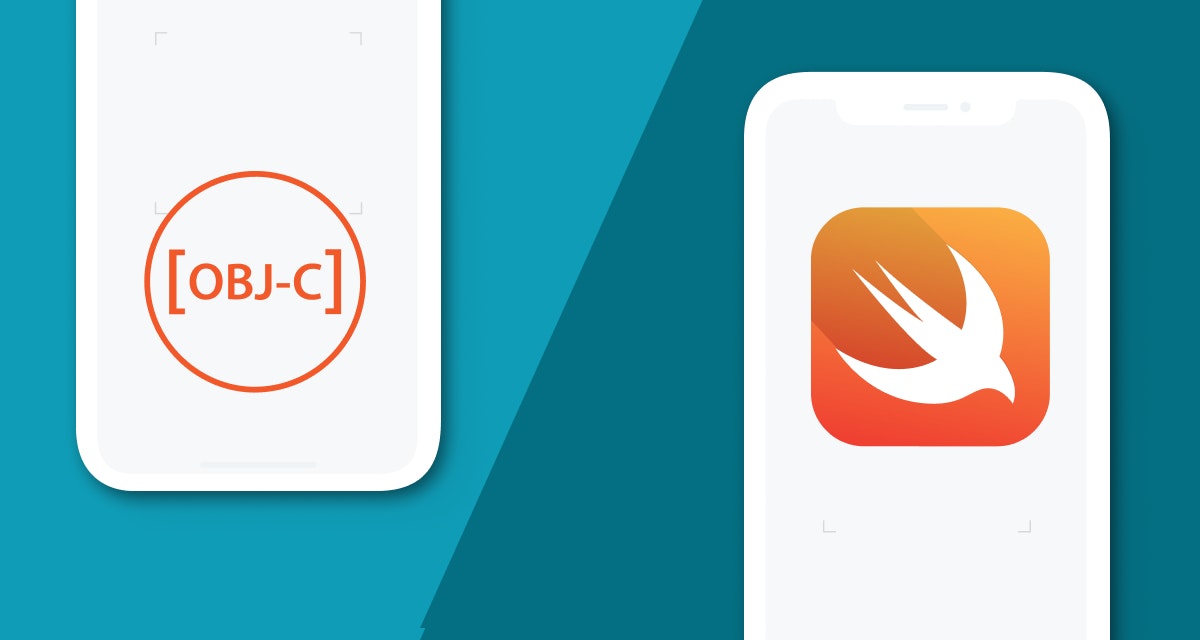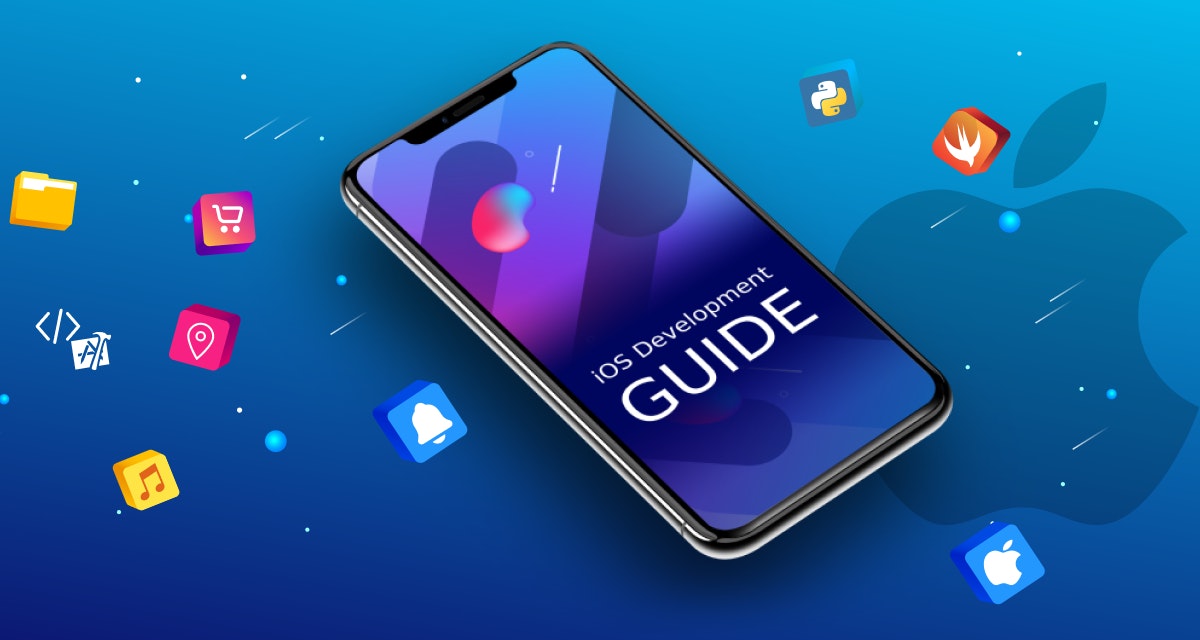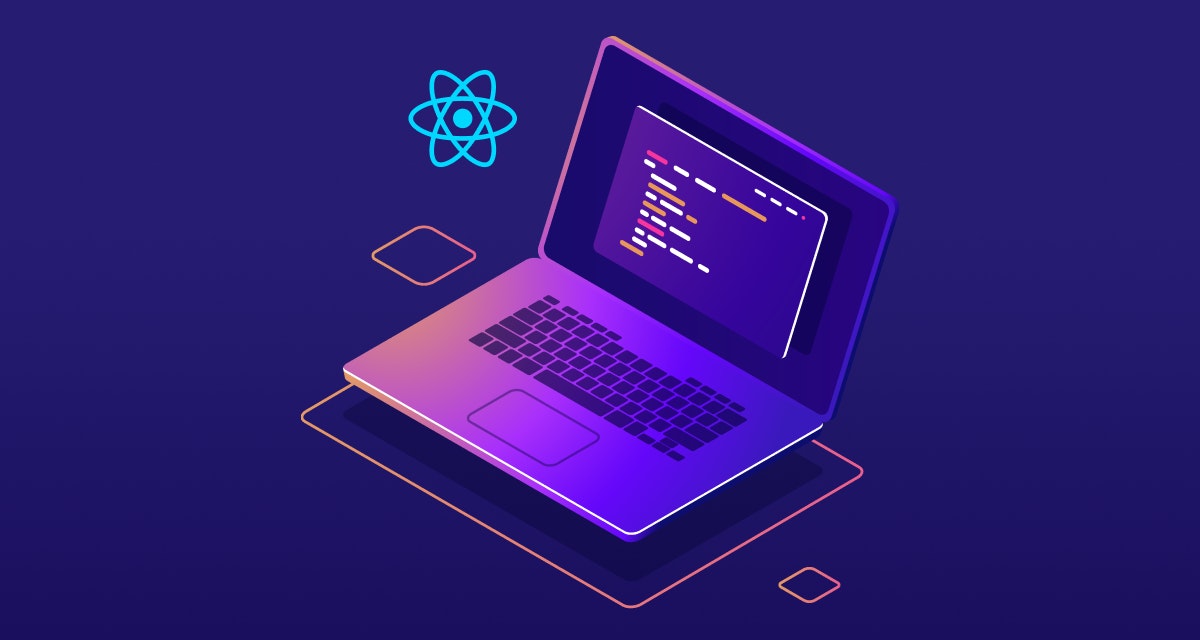If you’re a web developer and want to create amazing apps and websites, the first thing you need is to freeze on a programming language. iOS app development is one of the most promising spheres for mobile app developers around the globe. For developing iOS apps, two of the most popular languages contending each other are Objective-C and Swift. Both of them are among the top-paying tech skills in the United States.
Most web developers started their journey of developing iOS apps with Objective-C. However, coding with it was not exactly a breeze. It was easily one of the toughest languages to learn and the syntax wasn’t user-friendly too. With the introduction of the Swift programming language in 2014, iOS app developers and development companies got an alternative to Objective C as it was way more flexible. Now more than 77.6% of developers prefer Swift over Objective-C for iOS development according to a Stack Overflow Survey.
The Evolution of Swift and Objective-C
Objective-C is a compiler-based language that emerged in the 1980s. After being acquired by Apple, it became the primary language for developing iOS and OSX apps. After Swift came into the market in 2014, this stable and long-running code became obsolete to a certain extent. Swift is an open-source language that is known for being extremely simple and clear. The major difference between Objective-C and Swift is that the former while being an addition to C and C++, has abandoned all their complex and outdated elements.
Swift has several advantages over Objective-C because of its modern features. These are:
- Generics and high-order functions which make the code reusable.
- Three-character-long keywords that make the syntax less complex.
- Type inference and options make the code more secure
Thus with Swift, developers have to write lesser amounts of code than in Objective-C to achieve the same results. It can also reduce the number of crashes and increase the speed of development. No wonder Swift has found itself in the list of most-used programming languages and is slowly growing in popularity
Although Swift has been rising in popularity, there hasn’t been any clear winner as yet. There are some advantages and disadvantages to both the programming languages which make it important for a developer to learn both.
Objective-C
Pros
- Maturity – It has existed for over 30 years, hence it’s a developed and mature language. Moreover, it’s well-tested, has an extensive open-source library, and clear documentation.
- Dynamic typing – This feature helps to predict the developer’s mind and simplify the code.
- Compatibility – Being an old language, it supports the older versions of iOS and macOS.
- Stability – Since it’s old and well-tested, it’s a stable language and doesn’t require frequent updates. So you don’t need to worry about migrating to a different version again.
Cons
- Difficult to learn – It’s not very easy to learn since it’s based on OOP principles and has a complex syntax.
- Fewer developers – With newer, simpler alternatives available, many developers have stopped using the language and newcomers are refusing to learn an almost-obsolete language.
- Limited features – It lacks all the modern features which lead to poor performance.
- Security – Being an old language, it’s more prone to hacking.
Swift
Pros
- Simple to use – Swift is extremely easy to use and learn. It doesn’t take much time to develop and is clear and concise.
- Open-Source – It doesn’t require a licensing fee and can be used by both commercial and non-commercial companies.
- Modern features – Being a young language, it has modern features such as optimised memory management, dynamic libraries, better app monetization, etc.
- Development – This language requires fewer codes and hence is easier to develop. Thus it helps save a lot of time.
Cons
- Versions – Being a comparatively new language, there are frequent updates which require migration to newer versions leading to a loss of time and money.
- Compatibility – Being a young language, it doesn’t support the versions earlier than iOS 7.0 and macOS 10.9.
Swift Vs Objective-C for iOS Apps
Now that you’re aware of the pros and cons of both these languages, let’s compare them to come at a decisive conclusion:
- Readability – Objective-C is built on C, hence it contains all types of keywords such as the ones using the @ symbol. However, Swift, not built on C, unifies all the keywords, thus doing away with the need for various symbols. Moreover, Swift also doesn’t need any of the legacy conventions. The semicolons to terminate lines or parenthesis to surround conditional expressions inside if/else statements are no longer required. Finally, Swift is close to natural English which makes it easy for other languages such as JavaScript or Python to adopt it.
- Maintenance – Objective-C suffers from a legacy problem. Since it’s built on C, it can’t evolve unless C evolves. Just like C, Objective-C also requires developers to write to code files which is difficult to maintain. Swift, on the other hand, doesn’t require two separate files since its Xcode and the LLVM compiler does it automatically.
- Safety – As opposed to Objective-C, Swift’s syntax doesn’t contain common mistakes. In case of a nil code, Swift automatically informs developers about bad code. This makes Swift a much more secure language that reduces the chances of bugging.
Memory Management – In the case of Objective-C, the Automatic Reference Counting (ARC) is supported within the Cocoa APIs and object-oriented code and not procedural C code and APIs like Core Graphics. This leaves the entire management in the hands of the developer. In the case of Swift, the ARC is uniform across the procedural and object-oriented code paths making it a much more unified language with efficient memory management. - Coding – Swift reduces the need for heavy-duty codes. With its modern features, it simplifies the process and reduced the need for a lot of codes. In Objective-C, text strings need a lot of steps to join two pieces of information together.
- Speed – When you compare the Swift vs Objective-C performance, Swift wins in terms of speed. . Unburdened by legacy conventions, Swift achieves a faster code implementation as compared to Objective-C.
- Dynamic Libraries – Swift libraries are flexible so that apps can be updated to a newer version. These dynamic libraries in Swift load directly to memory, which helps to optimise the performance of the app.
- Open-Source – One of the best things about Swift is that it’s free for both commercial and non-commercial use. It was made open-source in 2015 which allowed many independent developers to suggest innovations towards the betterment of the language.
Swift Vs Objective-C at a glance :
Which Programming Language to choose for iOS App Development?
Swift has several advantages over Objective-C which brings many questions as to the future of Objective-C. With constant updates, Swift is slowly turning into a mature language too. Apple continues to provide support for both Objective-C and Swift. Although Swift seems to present more benefits at face value, you shouldn’t completely discard Objective-C. Both have their own set of pros and cons that are suitable for specific projects. While Swift is easy to use, Objective-C is more stable.
Before you choose a specific programming language, it’s important to consider the experience of your team and the specifications of your project. For example, if you have a set of developers adept in Objective-C, there’s no point trying to migrate to Swift.
Although Swift offers a lot of exciting opportunities, there are certain times when you should be sticking to Objective-C:
- When you’ve to update an existing app which is already written in Objective-C.
- If your project requires a C or a C++ framework, it’s best to stick to Objective-C since it’s built on C.</>
- If you’re new to Swift and want to save time, you can use Objective-C as it is old and more in use.=
- When you have a major project, it’s best to write the code in Objective-C. Since Swift has constant updates where you need to migrate entire work, you can avoid all of this by resorting to Objective-C.
Apple introduced Swift as an upgrade to its old language, so it’s natural to go for the recent one. However, before doing so, make sure you ask these questions:
- What language are your developers comfortable in?
- How big is your project?
- How much time do you have to deliver the project?
- What’s the purpose and future of the project
Swift and Objective-C are both great programming languages that offer great capabilities to iOS developers. It is not a discussion of the superiority of Swift over Objective-C. Both have their own abilities and shortcomings and developers use both languages in a syndicate to promise best results to the end-clients.
Choosing the right partner for iOS app development
iOS offers a great potential customer base for businesses, so it is integral that your app finds its way to the App store. However, Apple has a rigorous review process for their apps and many apps get rejected because of their shoddy coding or design.
If you don’t have in house talent to develop your iOS apps, then choosing an iOS app development company is your best bet. Intuz is a veteran iOS app development company with talented developers for both Swift and Objective C.
We ensure that we’re up to date with the latest know how and tools in iOS app development and keenly follow all of Apple’s guidelines and recommendations when it comes to app design and development. This is why all our apps have found acceptance on the App store with little to no changes requested by Apple’s app reviewers.
If you’re looking for a trusted partner to develop your iOS app, schedule a free consultation to get started.





